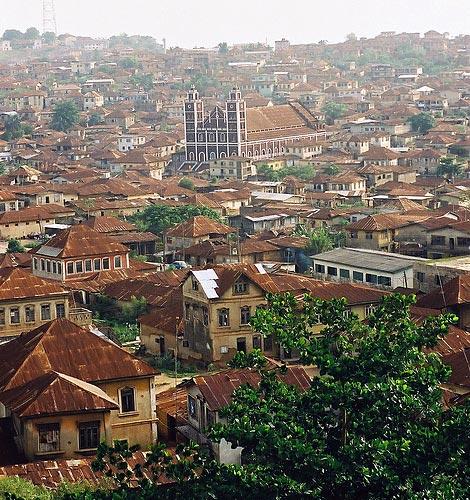The Federal Republic of Nigeria
 General information. The country is located in West Africa on the Atlantic Ocean’s coast. It shares borders with Benin, Cameroon, Niger and Chad.
General information. The country is located in West Africa on the Atlantic Ocean’s coast. It shares borders with Benin, Cameroon, Niger and Chad.
The climate in the south of the country is equatorial with high humidity and tropical in the north.
Population is about 150 million people. The main ethnic groups are Hausa, Yoruba and Igbo.
Territory is 924 square kilometers.
Administrative division. The country is divided into 36 states and the federal metropolitan district.
Capital - Abuja (about 1 million people). The former capital Lagos (by different data, from 10 to 18 million people) is the economic and cultural center of the country.
National day is the Independence Day (October 1).
Official language is English.
Religion. Muslims - about 50% of the population, Christians - 40% of population, 10% of population have their traditional beliefs.
Currency - Naira (rate of 1 USD = 151 naira).
Polity. Nigeria is a federal republic with a presidential form of government. The current constitution was adopted in 1999.
Head of State - Goodluck Jonathan (April 2011). He is head of government and commander in chief of the armed forces. The president is elected by universal direct voting to four-year term and has the right to occupy the post twice in succession. Olugbenga Ayodeji Ashiru is a Minister of Foreign Affairs.
Legislative power is presented in the bicameral parliament - the National Assembly in the Senate (109 seats) and the House of Representatives (360 seats).
Nigerian economy has the mineral and rough character and in terms of GDP is the third largest African country after South Africa and Egypt. The country has rich and varied natural resources, the main of which are oil and gas. Nigeria - a member of OPEC, is one of ten largest oil exporters. Per head income is 1142 USA dollars. About 42% of Nigerians live below the poverty line. Growth rates are 7.1%. Rate of inflation is 11.8%. GDP is about 225 billion USA dollars.
Structure of GDP: 53% - industry, 17% - agriculture, 29% - services. The main source of currency earnings is the export of crude oil.
Main articles of export: oil - 90%, natural gas, cocoa, oil palm, peanut, sugar cane. Main articles of import: machinery and equipment, construction materials, consumer goods, some raw materials, medicines, fertilizers. Major trading partners - China, India, USA, France, Spain, Japan, Brazil, Italy, Netherlands, Germany.
Education and culture. In Nigeria, there are 79 universities; considerable point is devoted to the development of science. However, there is still an acute problem of primary education enrollment.
Nigeria - a country of rich cultural traditions. Its writers are well-known not only in Africa, but also outside of the continent. In 1986, playwright and prose writer Wole Soyinka became the laureate of Nobel prize for Literature.
























